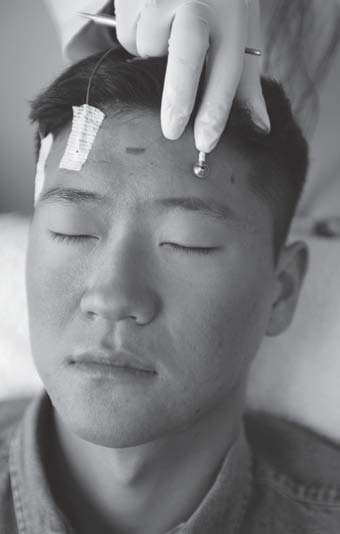Lesson 3: Sociocultural Causes of Abnormal Behaviour
Koro - Case Study 3
|
Description
His first episode occurred when he was 18 years old. He was suddenly convinced that his penis was retracting into his abdomen; he became tense, experienced an elevated heart rate, began to perspire, and felt as if he was about to die. After holding his penis for a few minutes, the episode passed, but since then, he has had similar episodes. Each episode lasts about 15 minutes and happens about twice per year. He did not recall any psychosocial stressors preceding each occurrence. In essence, he had no explanation for the attacks. He claims to have functioned well between episodes and showed no other signs of emotional or social difficulty. He had much shame, however, when discussing the problem with anyone. The patient was born into a middle-class family and was raised by his grandmother. As a boy, he often felt that his penis was much smaller than the other boys’ and was very self-conscious about cleansing in public showers or baths. Other than that, his childhood was rather ordinary. He graduated from school, obtained a job, married at age 26, and had his first child at age 27. A physical examination showed no abnormalities, and other than mild depression, he presented no psychotic symptoms. No personality disturbance was evident. |
Diagnosis The patient is suffering from Koro, a syndrome that appears in the South Pacific. Koro is usually described as an anxiety reaction in which a man fears that his penis will shrink into his abdomen and he will die. A rarer version occurs in women who they believe their external genitals are disappearing. In Western society, the patient may be considered anxious and delusional, but because it is common for family members to share the anxiety and belief that the event is happening (it is a culturally-shared idea), a delusional diagnosis is not made. The main feature of this syndrome is the episodic unrealistic anxiety about a physical symptom without any organic cause. This feature suggests a somatoform disorder. Because the episodes occur only about twice per year (not regularly for at least six months), a diagnosis of undifferentiated somatoform disorder is not possible. The final diagnosis, in Western society, is somatoform disorder not otherwise specified (Axis I), but the Asian term Koro is much more specific. |
 A man from the People’s Republic of China came to a psychiatric clinic complaining of a shrinking penis. The 28 year-old married man described having repeated episodes for over ten years. Despite being told that his penis had not actually retracted or shrunk, the patient continued to believe that it had. He came in for treatment only because he was told that, if his penis retracted into his abdominal cavity completely, he would die.
A man from the People’s Republic of China came to a psychiatric clinic complaining of a shrinking penis. The 28 year-old married man described having repeated episodes for over ten years. Despite being told that his penis had not actually retracted or shrunk, the patient continued to believe that it had. He came in for treatment only because he was told that, if his penis retracted into his abdominal cavity completely, he would die.